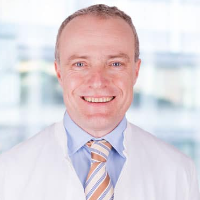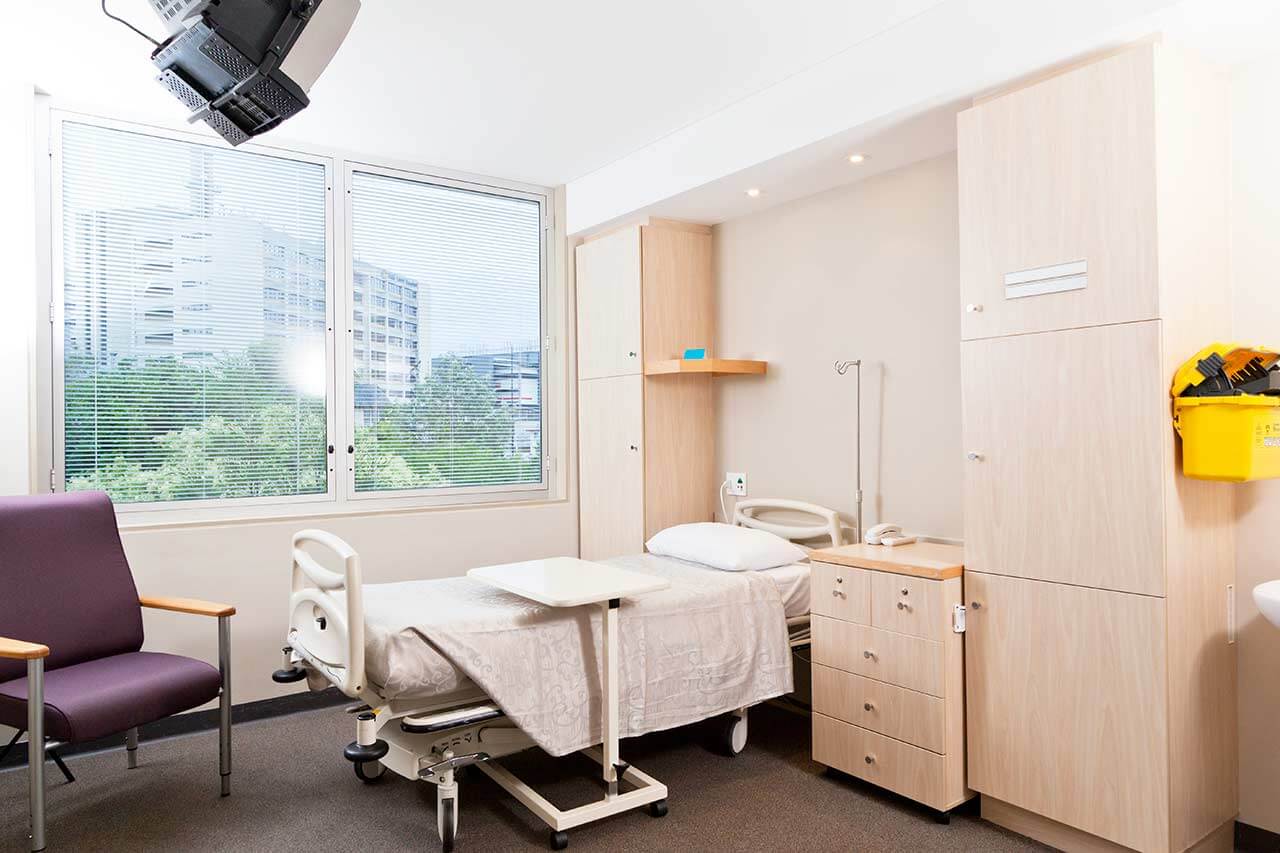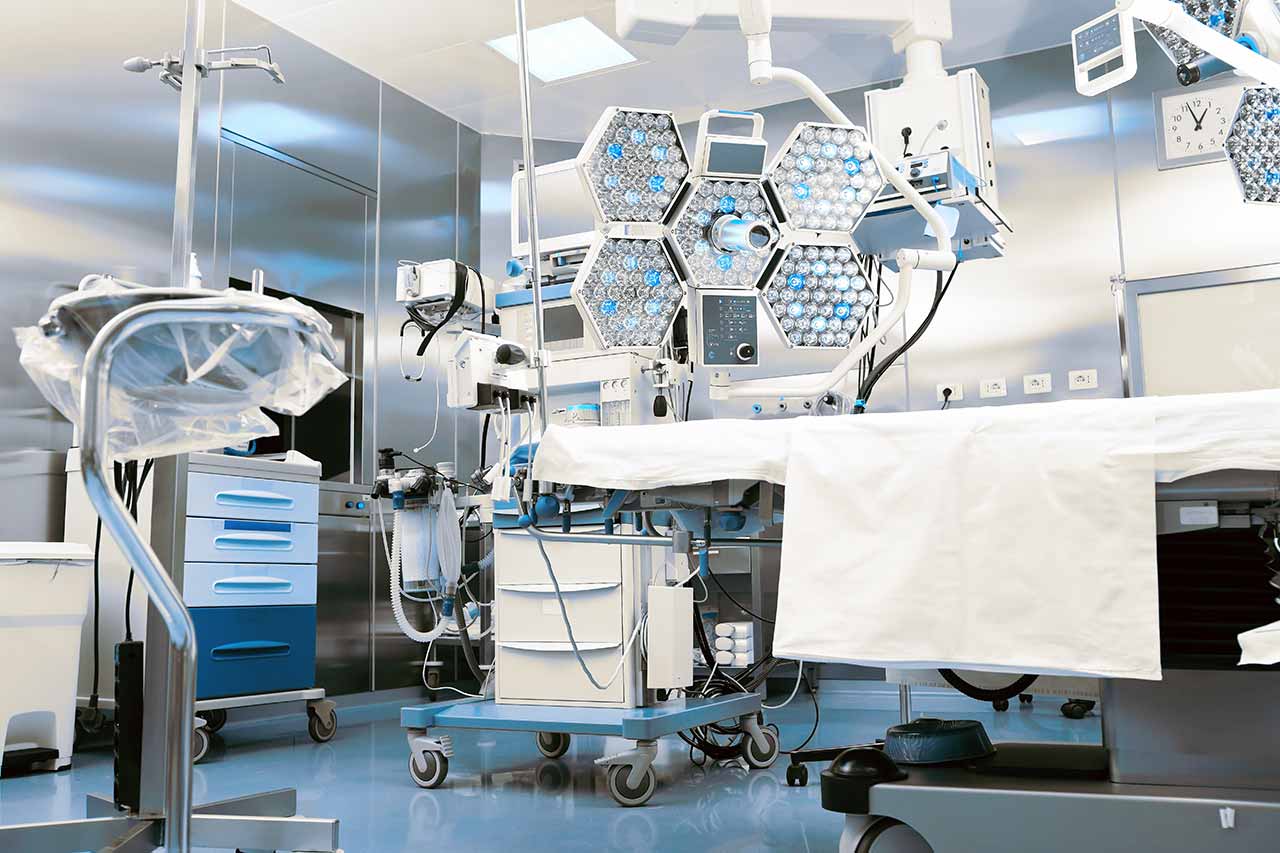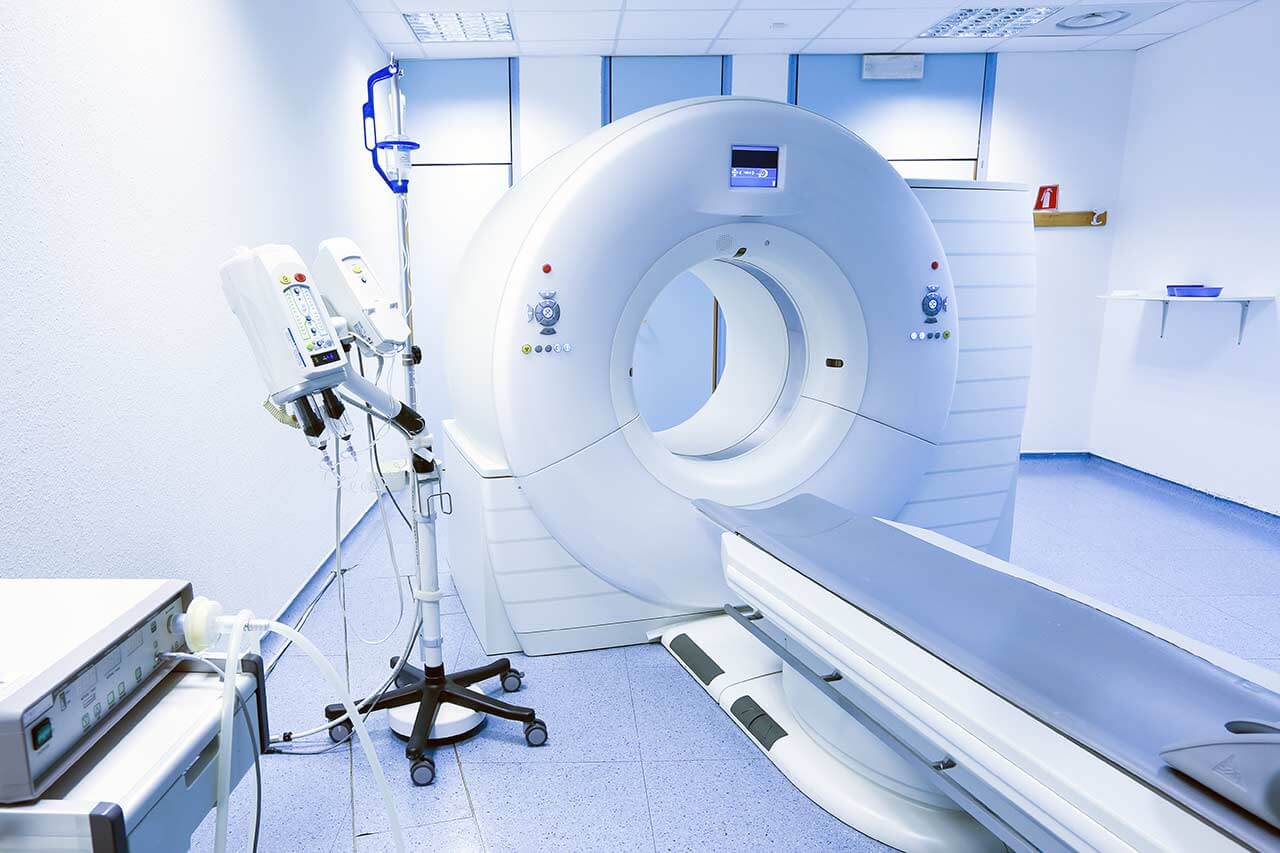
The program includes:
- Initial presentation in the clinic
- clinical history taking
- review of medical records
- physical examination
- laboratory tests:
- complete blood count
- biochemical analysis of blood
- thyroid function test (TSH-basal, fT3, fT4)
- mineral metabolism analysis (Na, K, Ca, Mg)
- lipid metabolism (HDL/LDL, cholesterol, triglycerides,
Lip(a), homocysteine) - iron content (ferritin, iron)
- blood coagulation analysis (aPTT, PT, INR)
- metabolic status (uric acid, total glucose, HbA1c)
- inflammatory parameters (CRP, ESR)
- cardiovascular disease risk markers
- lung function test (Spirometry)
- resting and exercise ECG
- vessel elasticity measurement
- Holter monitoring (24h)
- body fat and water examination
- color doppler echocardiography
- transesophageal echocardiography (tee)
- color doppler sonography of cerebral vessels
- closed ablation under 3-d mapping
- symptomatic treatment
- control examinations
- the cost of essential medicines and materials
- nursing services
- full hospital accommodation
- explanation of future recommendations
Required documents
- Medical records
- ECG (if available)
Service
You may also book:
 BookingHealth Price from:
BookingHealth Price from:
About the department
The Department of Cardiology and Angiology at the Beta Clinic Bonn offers the full range of medical services in the areas of its specialization. The department provides diagnostics and treatment for diseases of the heart, arteries, veins, and lymphatic vessels. In the field of cardiology, the key focus is on the treatment of coronary heart disease, heart rhythm disturbances, heart failure, and arterial hypertension. The team of angiologists most often treats patients with carotid stenosis, pelvic and lower limb artery stenosis, venous thrombosis, and aneurysms. The department has a modern diagnostic base, which allows the doctors to perform high-precision examinations to detect or exclude pathological changes in the heart and vascular system. Therapeutic options include both drug therapy with highly effective drugs and catheter-based interventional procedures. The department also offers comprehensive Check-up programs aimed at assessing the risks of developing myocardial infarction, arrhythmias, stenosis, and vascular occlusions. The department's doctors are highly qualified specialists, so they always find the best solutions to help patients with pathologies of varying severity. The department is headed by Prof. Dr. med. Jörg Otto Schwab.
The department pays special attention to the diagnosis and treatment of coronary heart disease. In patients with this disease, the blood supply to the heart muscle is disrupted due to narrowing or thrombosis of the myocardial arteries. Coronary artery disease may cause chest pain, difficulty breathing, general weakness, and other complaints. In the absence of timely and adequate treatment of this heart disease, the patient is at risk of developing myocardial infarction. When a patient is admitted to the department, doctors study his medical history and complaints, followed by a clinical examination, resting and stress ECGs, cardiac echocardiography, angiocardiography, and a series of laboratory blood tests. If the diagnosis is confirmed, treatment may include conservative and surgical techniques. As a rule, conservative treatment is prescribed in the early stages of coronary heart disease to control the pathology and prevent its progression. At this stage, the department's doctors combine drug therapy with lifestyle modifications (a healthy diet, giving up bad habits, dosed physical activity), and physiotherapy. In complex cases with critical occlusion of the heart arteries, the department's specialists recommend patients undergo angioplasty with coronary artery stenting. During the procedure, a balloon catheter is delivered to the site of stenosis and expands the lumen of the affected coronary artery, after which a stent (a metal mesh frame) is implanted inside, which maintains the lumen of the blood vessel necessary for normal blood flow. The last-line treatment for coronary artery disease is coronary artery bypass grafting, which is the responsibility of cardiac surgeons.
The department has modern methods for diagnosing and treating heart arrhythmias. As a rule, diagnostics include an electrocardiogram (ECG) to assess heart rhythm, echocardiography (heart ultrasound scan) to examine the heart muscle and valves, and detection of other heart conditions that may cause abnormal heart rhythms. The department also offers invasive diagnostic methods, namely cardiac catheterization. With all the diagnostic data, the department's cardiologists develop an effective treatment regimen. When patients have minor pathological changes in the heart rhythm, the specialists usually only prescribe drugs. Lifestyle modifications also play an important role: eliminating stressful situations, quitting smoking and drinking alcohol, as well as engaging in physical exercise. For patients with more severe forms of heart arrhythmia, the department offers radiofrequency catheter ablation and interventions to implant pacemakers and defibrillators.
The treatment of heart failure is also one of the priorities of the department's cardiologists. Diagnostics for suspected heart failure include laboratory tests, electrocardiography, echocardiography, 24-hour Holter ECG monitoring, chest X-ray scans, and other tests. As for the treatment, the department's specialists are competent in drug therapy. Patients are prescribed diuretics, ACE inhibitors, beta-adrenergic blockers, aldosterone receptor antagonists, and others.
In the field of angiology, key attention is paid to medical care for patients with carotid stenosis, pelvic and lower limb vascular stenosis, venous thrombosis, and abdominal and thoracic aortic aneurysms. The department's doctors successfully carry out drug therapy and endovascular interventions to treat vascular pathologies. Percutaneous transluminal balloon angioplasty followed by stenting is the most requested procedure among patients with vascular stenosis and obstructions. The essence of the procedure is as follows: a doctor inserts a flexible catheter-based system through a small skin incision and advances it to the blood vessel affected by stenosis; a special balloon is then inserted through the catheter that inflates, which leads to improved blood flow. The final stage of the therapeutic manipulation is stent implantation, due to which the lumen of the blood vessel remains open.
The department's range of medical services includes:
- Diagnostic options
- Resting and stress ECG, 24-hour ECG monitoring
- Resting and stress echocardiography using 3D electrocardiography
- 24-hour blood pressure measurement
- Spiroergometry
- Doppler ultrasonography
- Color duplex sonography
- Computed tomography
- Magnetic resonance imaging
- Angiography
- Comprehensive Check-up programs
- Therapeutic options
- Drug therapy
- Pacemaker and defibrillator implantation
- Radiofrequency catheter ablation
- Percutaneous transluminal balloon angioplasty with stenting
- Endovascular catheter thrombectomy
- Thrombolysis
- Other diagnostic and treatment methods
Curriculum vitae
Higher Education and Professional Career
- 1989 - 1995 Medical studies at the Justus Liebig University of Giessen, Germany.
- 08.2000 Doctoral Degree.
- 1996 - 2001 Assistant Physician, Department of Cardiology, University Hospital Giessen Germany; since 10.2001 Department of Cardiology, University Hospital Bonn, Germany.
- Since 03.2003 Senior Physician.
- Since 03.2010 Deputy Head Physician.
- 09.2002 Board certification, Internal Medicine.
- 09.2003 Specialization in Cardiology.
- 04.2004 Habilitation in Internal Medicine.
- Since 08.2009 W2 Professorship in Interventional Cardiology and Intensive Care.
- 06.2012 Additional Qualification in Intensive Care.
Research Focuses
- Sudden cardiac arrest.
- Cardiac arrhythmias.
- Electrophysiological studies.
- Treatment with a cardioverter-defibrillator and cardiac resynchronization therapy.
- Remote patient monitoring.
Memberships in Professional Societies
- Since 2002 German Cardiac Society.
- Since 2002 North American Society for Electrical Stimulation of the Heart.
- Since 2005 European Heart Rhythm Association.
- Since 2005 European Society of Cardiology.
- Since 2006 Member of the European Society of Cardiology.
- Since 2010 Member of the Heart Rhythm Society.
- Since 08.2010 Representative of AG33 Telemonitoring, and since 2013 Representative of the German Cardiac Society.
Photo of the doctor: (c) Beta Klinik Service-, Verwaltungs- und Forschungs- GmbH
About hospital
The Beta Clinic Bonn is a modern private healthcare facility with 20 specialized departments. In addition, the clinic cooperates with 30 independent doctors of various specializations, most of whom have their own private practices. The doors of the clinic first opened for patients in 2008. Since that time, the medical facility has expanded significantly and achieved outstanding success. It harmoniously combines state-of-the-art equipment, high levels of competence among doctors, and comfortable infrastructure. All these possibilities make it possible to provide patients with high-quality medical care in accordance with modern European standards. The work of the medical team at the clinic is based on the following principle: "Our task is to take care of the health of patients." The clinic provides comprehensive treatment, taking into account the individual needs and wishes of each patient.
The hospital has an excellent diagnostic base: rooms for instrumental diagnostics, imaging tests, and endoscopic procedures. The medical complex also has in-house laboratories with advanced equipment. The clinic's doctors have the opportunity to perform comprehensive diagnostics in the shortest possible time and detect the slightest pathological changes in the work and structure of the internal organs. When considering the diagnostic results in complex clinical cases, physicians from related specialties are often involved in the process so that all important aspects are taken into account when developing a treatment regimen for a patient.
The therapeutic options at the clinic are quite diverse. At the same time, doctors always strive to keep pace with innovations, carrying out treatment using the most modern and sparing techniques. The operating rooms at the clinic have advanced computer equipment, navigation devices, monitoring systems, surgical microscopes, special tools, and equipment for laparoscopic and endoscopic interventions, as well as laser systems. The clinic also has an in-house Rehabilitation Center, where patients undergo physiotherapy and therapeutic exercises.
The clinic is expanding more and more every year. Innovative developments in diagnostics and treatment are immediately introduced here. It is worth noting that the clinic is a pioneer in Germany in advanced laser treatment for epilepsy. The therapy was implemented into clinical practice in 2019 and has been successfully applied here since then.
Photo: (с) depositphotos
Accommodation in hospital
Patients rooms
The patients of the Beta Clinic Bonn live in comfortable single rooms. Each room has a separate bathroom with a shower and toilet. The rooms have a modern design and meet the standards of a high-class hotel. For the convenience of patients, the rooms are equipped with electrically adjustable beds, air conditioning, satellite and Internet TV, a telephone, and Wi-Fi.
The clinic also offers accommodations in enhanced comfort rooms. Such patient rooms have a more refined design. In addition, they are very spacious. Enhanced comfort rooms have a minibar, daily fresh fruit, and a special dinner menu. Most windows of the clinic's patient rooms offer a beautiful view of the Rhine River and beautiful green landscapes.
Meals and Menus
The patients of the clinic are offered balanced, delicious food: a buffet breakfast, a hearty three-course lunch, and a light dinner. Also, for dinner, one can taste special offers from the chef at the hospital restaurant, which, if desired, can be served to the patient room.
Further details
Standard rooms include:
Accompanying person
Your accompanying person may stay with you in your patient room or at the hotel of your choice during the inpatient program.
Hotel
You may stay at the hotel of your choice during the outpatient program. Our managers will support you for selecting the best option.
In the immediate vicinity of the clinic is the Kameha Grand, a five-star hotel. The exterior and interior of the hotel impress with their beauty. In addition, the hotel is famous for its excellent service. The hotel is located on the banks of the Rhine and offers picturesque views from its windows.





